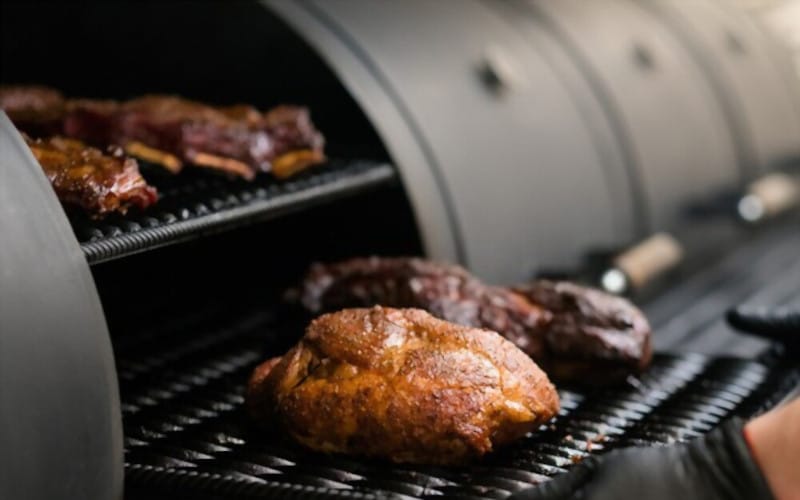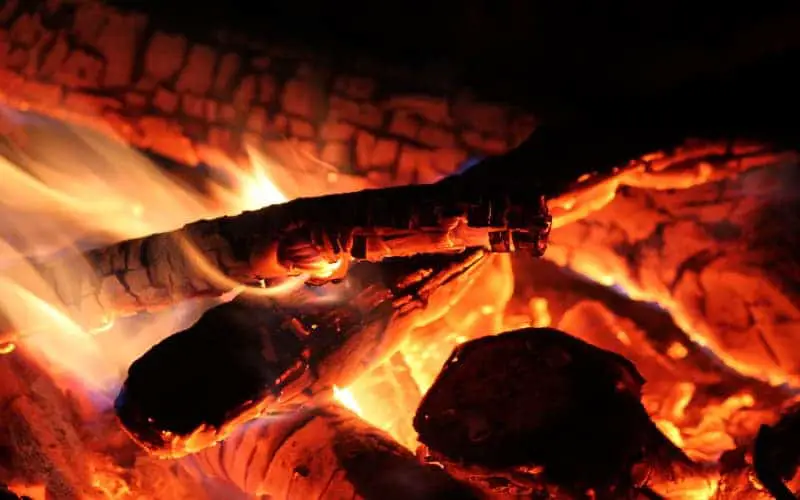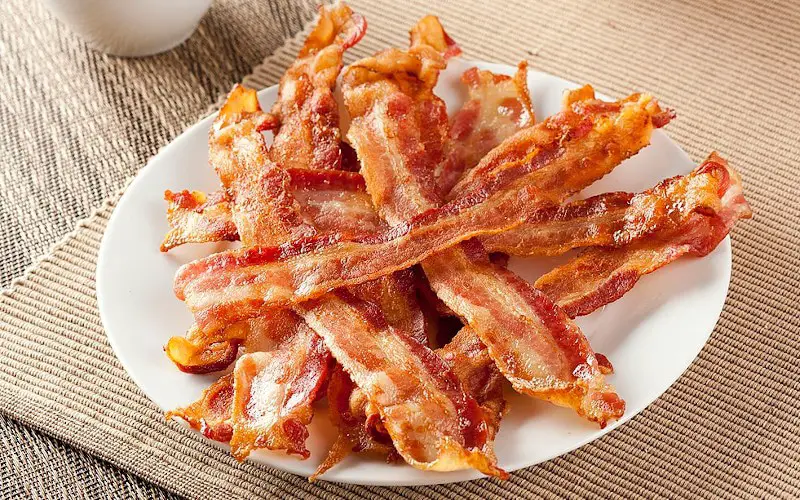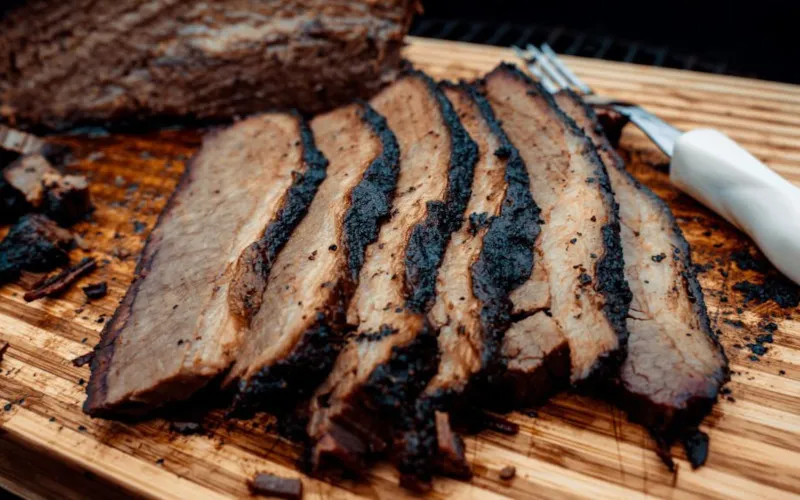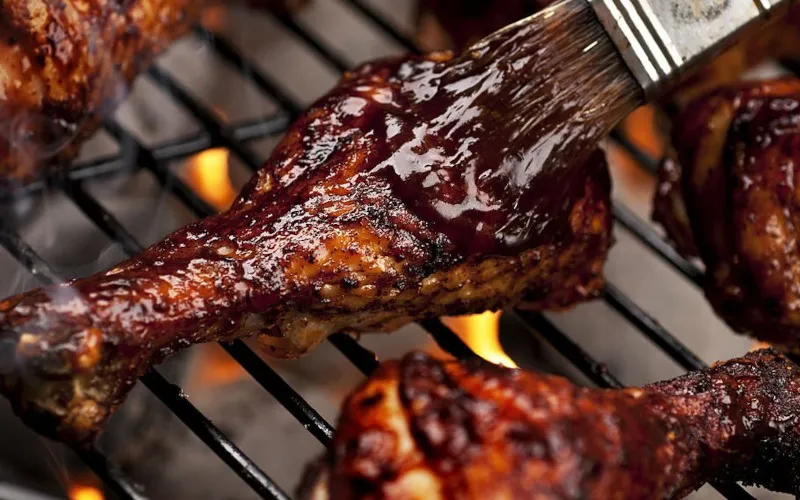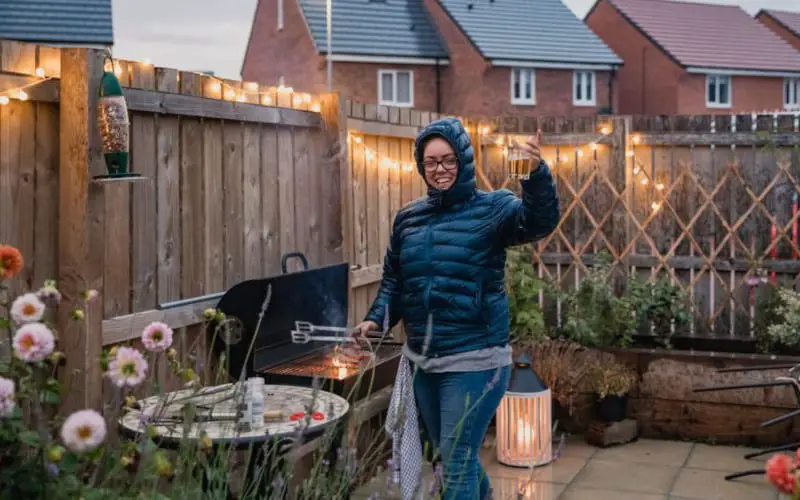Grilling season is here, but the last thing you want to worry about is the food sticking to the grill and burning. So why does chicken stick to the grill? And what can you do about it? Let’s find out!
Grilling chicken can seem intimidating at first, but it’s actually very easy to get right. Knowing how to grill chicken—along with what not to do—will give you a delicious, moist, and tender chicken every time you fire up the grill. Grilled chicken is fantastic on its own and makes an excellent addition to all kinds of summer dishes, from burgers to salads to sandwiches.
For deliciously grilled chicken, you’ll need to pay attention to both temperature and time. First, coat the chicken in a light layer of olive oil and seasoning. Second, heat your grill to somewhere between 425-450°F; any hotter and the chicken will stick! Grill each side of the chicken breasts for 4-5 minutes before flipping or removing from the grates.
No matter how you like your grilled chicken, you should find answers to any questions about grilling chicken in this article.
Why Do Foods Stick to The Grill Grates?
To ensure that your chicken doesn’t stick to your grill, you must understand what is causing it.
The top reasons why foods will stick to a grill are as follows:
1. You are using an older or damaged grate
If you have a grill that is about 4 years old or older, you may need to replace your grates. With time, heat and chemicals in foods can corrode and damage your cooking surface causing food to stick. Avoiding foods that stick is an indication of needing to replace them.
Look at manufacturer instructions to determine how long they will last before they need replacement.
2. You aren’t preheating your grill properly
Preheat your grill for 10-15 minutes with all burners on high. This allows time for everything to get hot enough so that when you add meat it won’t stick as easily. Improper preheating means low conductive heat on the metals which will, in turn, result in a bond between your food and the grates.
3. You are not cleaning your grates properly before cooking on them
Make sure to scrape all of your grill grates with a wire brush before adding food. This will remove built-up foods which may have caused past foods to stick and allows your new food to cook and not stick in one place while leaving another area un-touched.
Related: How to Clean Rusty Grill Grates
4. You are using too much oil, butter, or sauce
When preparing marinades try not to use too much liquid because it will cause excess moisture which causes sticking. Also, too much oil can not only cause food to stick, but it also affects the flavor of your meat which is not desired. Use as little as possible while still allowing your meat and veggies to cook properly.
Make sure to only use a few splashes of oil or butter to prevent sticking.
5. You are cooking at too high of a temperature
Even though high temperatures cook faster, they also cause foods to stick. You should preheat your grill on medium-high heat and make sure that you are not cooking your meats or veggies directly over an open flame. This will ensure that you don’t burn them but still give them enough heat to cook properly.
How Do You Keep Meat From Sticking To The Grill?
Because of how a grill works, the meat will inevitably stick to it.
There is, however, something you can do about it:
1. Use an oiled spatula for flipping
For foods such as burgers that need flipping, use a well-oiled spatula to flip them instead of using your hands. This will keep your hands clean and prevent sticking.
2. Use skewers for holding foods together
When grilling foods that need to stay in one piece, such as kebabs or chicken breasts, skewer them together before placing them on the grill. Doing so will keep them in place and prevent any mishaps that might occur when flipping them over mid-grill.
3. Use marinade for basting
Marinades are typically used for flavoring food, but they can also be used for preventing the meat from sticking to grill grates. When you’re basting the meat with a marinade, you’ll want to do it frequently so as not to burn or dry out your food.
Be sure not to use too much of it as doing so will give your food an unpleasant flavor and prevent it from absorbing other flavors during cooking.
4. Use cooking spray when grilling foods that tend to stick easily (e.g., fish)
Spray cooking oil on foods that tend to stick easily before placing them on grill grates and then lightly season them after you take them off of the heat source. This will keep your food from sticking to grill grates, as well as prevent burning.
5. Use a nonstick spray for nonstick surfaces (e.g., Teflon)
Nonstick sprays are designed for use with nonstick surfaces such as Teflon and cast iron pans, but they can also be used for preventing food from sticking to other types of surfaces when used properly. When using a nonstick spray on grill grates, make sure you’re only spraying directly onto the surface that is in contact with your food.
6. Use a bristle brush for cleaning grill grates after cooking (and before next use)
After you’ve finished cooking on your grill, it’s important to clean it before using it again. Use a bristle brush and scrape off any bits of food that are stuck to grates and then wipe them down with a damp cloth. This will prevent food from sticking in future uses of your grill.
7. Use indirect heat, if possible
Cooking with indirect heat is a great way to prevent the meat from sticking to grill grates. This method of cooking involves using either a separate burner or placing foods on a grill that is turned off. You could also use aluminum foil for covering parts of your grill if you’re having trouble getting food to not stick.
Tips to Prevent Food from Sticking to the Grill
At times, cooking food on a grill can be a bit challenging as it is difficult to control food sticking to the grill.
Here are tips and precautions that will help you to prevent your grilled food from sticking:
- You can prevent your grilled food from sticking by using marinades or brines. The acidity of a marinade or brine can break down some of the proteins in meats and help them to brown more evenly. Also, it has a tenderizing effect on tougher cuts of meat such as pork shoulder and chicken thighs that require longer cooking times and overheating to make them more palatable.
- A dry rub is another way to keep foods from sticking to the grill. Rubs are applied directly to foods before grilling and are typically made with spices like paprika, chili powder, cumin, coriander, and others. Rubs can also be used after grilling as a flavor enhancer for items like grilled vegetables or other side dishes.
- In addition to preventing food from sticking to the grill, you should also consider oiling your grill before placing any type of food on it. This will help prevent foods from sticking to your grill and will also ensure that they cook evenly.
After grilling, always remember to clean your grill properly with a wire brush or a grill scraper, and then apply a light coat of vegetable oil before storing it away for future use.
If you’re planning to grill a big piece of meat, always start out by searing it over high heat. This will give you a nice crust that can prevent foods from sticking and also add flavor. You can follow up with slower cooking over indirect heat as well.
Always remember to cover your grill when cooking.
If you don’t, you will end up with fat dripping on your coals or flames that can burn your food and possibly cause sticking issues as well. Also, if you have a gas grill make sure it is properly adjusted so that it doesn’t flare up while you are grilling.
If possible, try not to use too much marinade for grilling as it may prevent foods from browning properly and may also cause them to stick to your grill surface instead of creating a nice crust which helps in preventing foods from sticking.
Make sure there is adequate space between pieces of meat before placing them on your grill. This will help you to avoid crowding which can lead to sticking and burning issues as well.
Remember that meats with a higher fat content are more likely to stick to your grill than leaner cuts so be careful when cooking these types of foods. Make sure you don’t overdo it with marinades or brines as they may cause food to stick instead of browning properly.
Finally, don’t press your meat with a spatula or with your hands. If you need to move it around make sure to do so gently and avoid squeezing as much as possible. Pressing on your meats can actually cause juices from within to release and lead to sticking instead of browning.
What To Do With Overcooked Chicken?
The key to grilling perfect chicken breasts is knowing when they are done. The easiest way to tell if a breast is done is by using an instant-read thermometer. Cooked at high heat, most chicken breasts will register between 160 and 165 degrees Fahrenheit.
If you’re uncomfortable with a thermometer, you can tell that your chicken is done by feel or appearance alone: As it cooks, the white breast meat will turn opaque; dark meat will become brown. There should be no pinkness remaining in either.
But what if you overcook? Well, if you’ve ever had grilled chicken that was overcooked—dry and chewy—you know how disappointing it can be.
Overcooked chicken doesn’t have to be a thing of the past and there’re lots of things you can do with it including:
- Serving or simmering in a sauce: This is a very good way to use up any chicken that’s been cooked too long. Simmering chicken in a sauce is also a great way to turn your overcooked chicken into something delicious.
- Shredding and adding to another dish: Shredded chicken makes an excellent addition to salads, soups, and casseroles. It can also be used as a filling for enchiladas or tacos.
- Tossing with pasta: A great way to use up overcooked chicken is by tossing it with pasta—just add some tomato sauce and Parmesan cheese for a simple yet satisfying meal.
- Making sandwiches: Chicken sandwiches are easy to make when you have overcooked chicken on hand—and they’re even better when made with grilled or pan-fried pieces of chicken that have been simmered in sauce first!
- Making the chicken salad: Last but not least, you can always make chicken salad with overcooked chicken. It’s a great way to use up any leftover cooked chicken and a good reason to try out different flavor combinations.
Frequently Asked Questions
How Long Do You Cook Chicken On The Grill?
Depending on what cut of chicken you’re grilling, it can take anywhere from 10 to 30 minutes. To make sure your chicken is cooked through, check for doneness by using a meat thermometer. You want to shoot for an internal temperature of 165 degrees Fahrenheit.
Can You Grill Raw Chicken?
Yes, you can grill raw chicken as long as you don’t go too hot on the grill. However, it’s best to marinate your chicken to add flavor and protect your meat from drying out on that searing-hot grill.
For example, use a simple mixture of olive oil, citrus juice, and dried herbs for a nice grilled chicken recipe. The acids in citrus juice help tenderize your meat while killing any harmful bacteria that may be present on its surface.
How Do You Keep Chicken From Burning On A Gas Grill?
Sometimes it seems like everything is on fire. But don’t worry, you can easily prevent the chicken from burning on a gas grill by learning how to control your heat and knowing when to move your food around. It all comes down to knowing how long it takes for food to cook and adjusting accordingly.
How To Make Chicken Less Dry After Cooking?
If you’re grilling chicken, here are two easy tips to help it stay nice and juicy:
- Marinate in olive oil, salt, pepper, and any spices for about an hour before cooking.
- Cover it with plastic wrap until you’re ready to grill; it’ll hold in more moisture that way.
Keep in mind that grilling chicken is going to be tougher than other meats—chicken just has a different fat content and can dry out easily on a grill. After cooking, you can ensure the juiciness lasts by covering your meat with foil or even placing it back into its original marinade container.
How To Soften Tough Cooked Chicken?
If you’ve ever cooked chicken breasts that end up too dry and hard to chew, try cutting them into strips or cubes and simmering until the pieces are tender. This method can increase tenderness by almost 50%!
Plus, chicken strips are a great way to get kids to eat their meat—any recipe that is served with a dipping sauce (like honey mustard) will become an instant hit. There’s just something about finger food that makes it more fun and easy to consume.
Related: Cooked Chicken Left Out Overnight
How To Keep Chicken Wings From Sticking To Grill?
The easiest way to keep wings from sticking is to cook them skin-side down first. It may take a few extra minutes for them to grill, but it’s worth it for that crispy exterior. Once they have cooked over low heat, you can flip and finish cooking through on high heat.
Do You Grill Chicken With Lid Open Or Closed?
The grill lid is generally left open when grilling chicken and other meats since it can help reduce flare-ups. However, if you want to slow cook your meat with indirect heat, you can place a disposable foil pan over direct heat sources (such as charcoal or gas), cover with a grill lid, and let cook.
This will trap all of that delicious flavor inside. Be sure to check on your food every 30 minutes to make sure it isn’t overcooking.
How Long To Grill Bone-In Chicken On A Gas Grill?
Because bone-in chicken is generally cooked at the same or slightly higher temperatures than its boneless counterpart, it will cook slower. Cook bone-in pieces of chicken until they reach an internal temperature of 165 degrees Fahrenheit.
This should take about 30 to 40 minutes on a gas grill when you’re cooking over medium-high heat.
Conclusion
Grilling chicken is a great option if you’re looking for a tasty alternative to boring old hamburgers. And unlike burgers, grilled chicken can be used in a wide variety of meals, from sandwiches to salads and more. Plus, it takes very little time to prepare—so it’s a great way to get dinner on the table quickly.
Now that you know how easy it is to grill chicken, why not try it out?
